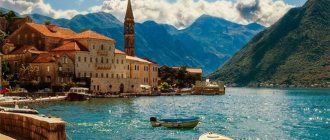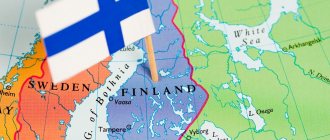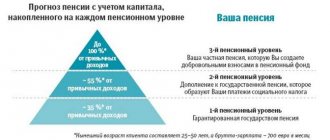Croatia is a small sovereign European country that was a Yugoslav federal republic before gaining independence in 1991. Since then, it has achieved significant success in the international arena, becoming a member of such authoritative organizations as the UN, OSCE and the Council of Europe. The newly formed state always sought to interact with its neighbors on the continent. In 2013, the country joined the EU. This event had an impact on immigration levels. Life in Croatia has become more attractive for Ukrainians, Russians, and Belarusians who want to move closer to the warm sea in southern Europe.
Pros and cons of living in Croatia
Over the two decades that have passed since the end of hostilities in the territory of the former socialist republic, stable economic growth has been recorded in Croatia. The country was in second place after Slovenia in terms of recovery rates. However, the material level here still remains low compared to other European countries.
Living in Croatia has its pros and cons. Among the advantages are:
- Good climatic conditions.
- Favorable environmental situation.
- Proximity of many EU countries.
- High level of security.
- Recreation and treatment opportunities that Croatia provides for children.
- Low real estate prices by European standards.
There are also significant difficulties awaiting those who decide to move:
- Immigration to Croatia is regulated by a fairly strict law adopted in 2008. Obtaining citizenship involves serious difficulties.
- High unemployment rate.
- The need for compulsory learning of the Croatian language.
- Domestic problems: lack of gas or central water supply in some areas.
Moving to Croatia for permanent residence is very difficult for those who are not major investors.
Weather and climate
Considering the different natural areas, Croatia can be divided into three regions:
- Seaside;
- Central;
- Northern.
On the islands and the shores of the Adriatic the Mediterranean climate is predominant, in the Dinaric Highlands it is mountainous, in Northern, predominantly flat Croatia it is continental. In the resort area, dry and hot summers give way to warm and mild winters; the air temperature remains positive throughout the year. The length of the Adriatic Sea coastline in Croatia is 1,777 km. Water temperature from +12° in winter to +26° in summer.
In the mountainous part, frost down to -30° is possible in cold weather. The abundance of snow allows for the creation of excellent slopes at ski resorts. The skiing period is from November to April. In continental Croatia, comfortable air temperatures range from -5° in winter to +26° in summer. From November to February the weather is rainy and cloudy.
Population
According to the 2021 census, 4154.2 thousand people live in Croatia. The country's Constitution lists 22 nationalities living on its territory. The largest group is the Croats, who make up more than 90% of the total population. Among minorities:
- Serbs;
- Italians;
- Slovenes;
- Hungarians;
- Albanians;
- gypsies;
- Czechs;
- Bosnians;
- Macedonians;
- Montenegrins;
- others.
The vast majority of the country's population are Catholics. Croatian language has the status of the state language. In certain municipalities where national minorities live, Italian, Hungarian, Serbian, and Czech are also recognized as official languages. The attitude of Croats towards Russians and other visitors is even, not too welcoming. The country has a very developed national identity; Croats are more likely to hire or provide assistance to their own people than to foreigners. The population decreases slightly every year due to the outflow of citizens to richer European countries.
Economy
The Croatian subsoil contains small deposits of oil and gas, as well as large deposits of bauxite, pyrite, copper ore and brown coal. Leading industrial sectors:
- shipbuilding;
- oil refining;
- chemical;
- food;
- textile;
- woodworking;
- pharmaceutical.
Forty years ago, Croatia was one of the world's three largest shipbuilders. Since then, it has lost its leading position, but exports finished vessels, including for customers in the Russian Federation. Just over 20% of Croatia's GDP comes from the production of tobacco, beverages and food. Income from foreign tourism takes second place – 13%. Exports are dominated by medicines, telecommunications, food, and electrical goods.
Real estate
Russians have three reasons to buy property in Croatia:
- Moving to permanent residence.
- The desire to have your own apartments by the sea for relaxation.
- Intention to organize a business for renting out residential premises to tourists.
The value of real estate depends on its location. To buy a house in Croatia by the sea on the coast, you will have to pay an average of €1,600 per 1 sq. m. m. In Dubrovnik – €3000. These are the highest home prices in 2021. You can buy an apartment in the continental part of Croatia for €500 per 1 sq. m. m. Until 2014, Russians did not have the right to purchase real estate in Croatia for an individual. Those who wanted to had to open a company and register an apartment or house for it; such maintenance of a legal entity cost €1,200 – €1,500.
In 2014, Russia and Croatia signed a reciprocity agreement. This means that citizens of two countries have the right to purchase real estate on each other’s territory on equal terms. Now Russians can buy apartments or houses with plots, but they cannot become the owner of land without buildings.
Products
Grocery prices in 2021 in supermarkets in Croatia are shown in the table:
| Name | Unit | Cost (€) |
| Beef | kg | 8.35 |
| Pork | kg | 6.00 |
| Boiled sausage | kg | 2.50-4.00 |
| Chicken fillet | kg | 6.21 |
| Fish | kg | 4.00-6.00 |
| Tomatoes | kg | 1.28 |
| cucumbers | kg | 2.30 |
| Potato | kg | 0.62 |
| Onion | kg | 0.77 |
| Apples | kg | 1.13 |
| Bananas | kg | 1.46 |
| Pears | kg | 3.00 |
| Eggs | 10 pieces | 1.75 |
| Bread | 0.5 kg | 0.77 |
| Rice | kg | 1.53 |
| Milk | liter | 0.76 |
| Cheese | kg | 7.11 |
Buying food in supermarkets and markets is much more profitable than visiting canteens. The cost of food in a cafe in Croatia starts from €8 per person, and in a restaurant – from €12. In Dubrovnik and other popular resort towns, these figures are one and a half times higher.
Official minimum wage in Croatia
The European Union is bringing Croatia up to the average European level and forcing it to regularly index wages. This is one of the main rules of membership in the EU and entry into Schengen, which the republic plans to join in the near future.
Over the past ten years, the official minimum wage has increased from 380 euros to 500, i.e. almost one and a half times.
In February 2021 it is 4,062.51 kuna, which is equal to 539.14 euros or 48,216.64 Russian rubles.
On a note! Kuna exchange rate at the end of December 2021: 100 kuna is 1,211 rubles, 16 US dollars or 13 euros
For comparison, in Russia the minimum wage is 12,130 rubles, which, translated at the rate of 1001 hrk, is four times less with a similar standard of living, where the cost items overlap.
Another problem is that these are official data for Croatia and in reality a person can receive much less - 3-3.5 thousand kuna.
Employment
Work in Croatia for Russians is allowed only with permission. The exceptions are:
- accredited journalists;
- scientists involved in scientific experiments and developments;
- arrived in the country on the basis of a pre-concluded contract;
- invited hired university teachers;
- persons carrying out religious activities;
- cultural figures for a period of no more than 30 days;
- family members of Croatian subjects who have a residence permit.
Finding a job is not easy. In conditions of fairly high unemployment (over 20%), preference is given to citizens of Croatia and EU countries. Anyone wishing to find a job must obtain permission to carry out work activities. It is issued on the basis of quotas established for all sectors of the economy. The most realistic way for a Russian to find work is in the tourism business or in an agricultural enterprise. Maids, bartenders, cooks, dishwashers, waiters, and general workers are required here.
In order to do business in Croatia, you need to obtain a business permit. It also provides the opportunity to stay in the country for a long time. To obtain a permit, you must own your own housing or rented housing, as well as an enterprise. Opening your own company in Croatia is quite simple and quick. The authorized capital must be at least €2800, all registration costs – €3000. You can work in a company as a director or simply be the owner.
Average salaries
The average salary of a foreigner in Croatia in 2021 was around €500. In the tourism sector, it is possible to receive €700, and for a citizen worker even more: €900 or €1000. The salary of a waiter or bartender during the season is €840, and a maid’s salary is €600. If the employer provides accommodation and food, €150 less.
Qualified specialists have the following salaries:
- lawyers, lawyers, notaries – from €1520;
- school teachers – from €1150;
- medical workers - from €1103, but a lot depends on education, specialty and experience;
- accountants and auditors – from €1280;
- IT specialists – from €1350.
In the manufacturing industry, salaries average €1,208, store salespeople – €615.
Professions in demand
In addition to the service sector and tourism, you can find work in the capital – Zagreb. Doctors, IT specialists, and builders are in demand here. However, it is very difficult for a foreigner to find a job. The procedure for confirming diplomas in Croatia is complex and lengthy. This is especially true for doctors in the so-called regulated professions. With a very high unemployment rate, the employer, if there is one, will have to explain to the employment service why he wants to hire a foreigner. It is necessary to prove that there are no candidates for the position among Croatian citizens.
Average salary in the country
The average salary best reflects the economic and social picture in the country.
The average salary in Croatia in 2021 increased by 4.4% and is:
- 9,261 kuna per month gross is* 1,229 euros or 109,912 rubles
- 6,796 kuna per month net, i.e. after tax deductions - 901 euros or 80,578 rubles.
*at the current exchange rate for February 2021
At the same time, the average monthly income in the Russian Federation is 43,400 rubles, which is almost three times lower than the Croatian one.
If we take payment by the hour, then one working hour on average is valued at 37 kunas after taxes.
On average, a normal monthly income is 10-12 thousand, net cash 8-9 thousand kuna - a sufficient level for ordinary life in Croatia.
By industry
If we take the average income by economic sector, the leaders will be telecommunications, banking and insurance - from 13 thousand, the ceiling is unlimited.
Next come medicine, IT, industry - from 12 thousand Croatian kuna. We are talking about highly qualified specialists who have undergone serious training and are of intellectual value to the country.
In descending order - manufacturing, manufacturing, tourism, services, here the income is from 8.5-9 thousand.
Then agriculture, logistics, trade, construction - from 7.5 thousand.
The ranking is completed by low-skilled workers, accommodation and food, civil servants - from 7 thousand kunas.
By specialty
Traditionally, for European countries, the following specialists have the highest salaries:
- lawyers and attorneys;
- teachers;
- economists and financiers;
- programmers;
- doctors;
- scientists.
Their income is at least 10,000 hrk.
If we take the service personnel:
- waiters;
- hairdressers;
- maids;
- trainers;
- sellers
then their monthly income starts from 5,000 hrk.
General workers, people without education and valuable skills can expect a salary of 4,000 – 4,500 hrk, which is close to the minimum wage.
Tax system
According to experts, the taxation scheme in the state is well thought out and optimal. The rates of income tax paid by both residents and non-residents are quite high here. Depending on the income received, deductions range from 15% to 45%. If the taxpayer permanently resides in the territory of any municipal unit, additional funds may be collected to the extent permitted by law.
The purchaser of real estate must pay a turnover tax equal to 5% of the market value at the time of purchase. In addition to these general taxes, the following groups of mandatory payments apply in Croatia:
- state (VAT, profit);
- special (for petroleum products, private cars and others);
- administrative (inheritance, donation, means of transportation and others);
- urban or community.
To be considered a resident of Croatia, you need to spend more than 182 days a year on its territory or own real estate in the country.
What is the unemployment rate in Croatia
Experts say that this figure is significantly lower than, for example, in the Russian Federation. However, the overall figure is 18.4% and is characterized as high. The level changes from year to year, having analyzed from 2006 to 2021, it is worth noting that unemployment is more relevant than ever.
Unemployment rate in Croatia
In May 2021, the unemployment rate was recorded to fall to 9.2%, indicating that the percentage had dropped significantly since the early 2000s. Persons who cannot find official employment in organizations due to the lack of suitable vacancies are offered unemployment benefits. Their size is set depending on the state of the household and the region of residence of the person.
Medicine
Since independence and the end of hostilities, Croatia has been able to significantly improve its level of healthcare. New clinics equipped with innovative equipment have been built, and professional personnel have been trained. Medical care in Croatia is considered one of the best among EU member states. Orthopedics, dentistry and cardiology have received particular development.
Healthcare costs increase by 20% annually. All citizens are insured in the compulsory insurance system and have the opportunity to receive free health care in government institutions. Croatia is home to more than ten thermal springs and a deposit of medicinal oil - naphthalan. Modern sanatoriums have been built, and medical tourism is developing.
Read also: Croatian citizenship for Russians
Results
Croatia is attractive to Russians in two ways:
- Purchasing real estate, the value of which grows annually by 20%. This is a good investment, especially when it comes to luxury or unique properties.
- Doing Business. The country's economy is booming, resorts and beaches are recognized as the most environmentally friendly in Europe. This should lead to a further increase in the number of tourists.
For the employment of foreigners in Croatia there are not the best conditions among the EU countries. But you can try to find a job if you want to settle in this country.
Professions in demand in the country for foreigners
According to experts, Croatia is experiencing a personnel shortage in highly qualified specialists with good education and a large knowledge base and ordinary workers with secondary specialized training.
In the coming years, the republic is looking for the following specialists:
- in science - employees of any field with a scientific degree;
- in IT – programmers, testers;
- in construction – specialists from the design and technology department (architects, engineers).
Migrants with such skills can count on high wages and good social security.
In addition to these specialties, Russians will always be able to find work in the service sector:
- freight drivers and taxi drivers,
- service personnel in hotels and restaurants;
- teachers, nannies, animators.
Popular vacancies for migrants without education or as temporary ones are laborers in construction, manufacturing, and agriculture.











